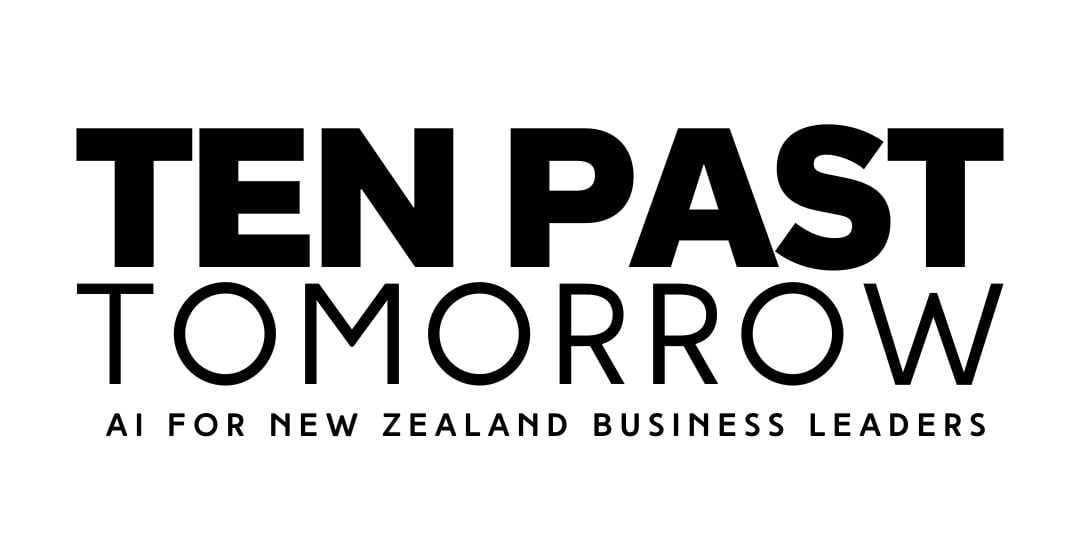Reviewing KPMG's generative AI survey
Unless you’ve had your head in the sand since ChatGPT’s release in November last year, you’ll know generative AI is rampaging through the business landscape, beginning to transform everything it touches, and offering unparalleled opportunities for innovation and growth.
As business leaders, understanding the potential of this emerging technology and how it can benefit our organizations is crucial to staying competitive. It’s difficult to overstate just how crucial, and a recent study released by KPMG reinforces this assertion.
Read on as I explore the key takeaways from the KPMG survey, which polled 300 global C-suite and senior executives navigating the AI transformation journey, of which 225 were US-based.
Executives anticipate significant impact from generative AI, but are leaving the door open for first movers to take big advantage
65% of executives believe generative AI will have a high or extremely high impact on their organizations in the next 3-5 years, saying this technology will drive innovation, customer success, and more efficient operations.
However, 60% of them say they are still a year or two away from implementing their first generative AI solution.
Translated: Businesses see the (AI generated) writing on the wall, but because they’re unsure about how to take the first steps with generative AI, they’re going to take a “wait and see” approach, and follow the herd.
What does this mean for us as business leaders?
It means it's absolutely time to pay attention to generative AI, and not just to tinker with it, but to take advantage of the first mover status that’s on the table right now, while others are “waiting and seeing”.
Four important takeaways from the KPMG survey
- Generative AI can significantly impact innovation, technology investment, and customer success.
- The technology is expected to have the most transformative effects on research and development, product development, and operations.
- The majority of executives believe generative AI can build and maintain stakeholder trust when proper risk management tools are implemented.
- Executives are optimistic about AI's potential to increase productivity and encourage innovation but also recognize potential negative implications for the workforce.
 "Guys, come quick, there's AI over here"
"Guys, come quick, there's AI over here"
The Human + AI dynamic: Balancing technology and people
The KPMG survey suggests that while generative AI is likely to have a profound impact on productivity and innovation, execs are also concerned about the future of their workforces.
The KPMG survey found that:
- Executives are optimistic about AI's potential to increase productivity (72%), change the way people work (66%), and encourage innovation (62%).
- Potential negative implications include decreased social interactions and increased mental health issues among employees.
One of my core beliefs about how to approach AI transformation is that it's essential to consider the human+AI dynamic when implementing generative AI. I touched on this belief in a recent article I wrote, here.
We must adopt a hybrid approach that combines our human talent with emerging AI capabilities within our teams. This balance is vital to ensure that employees remain engaged, motivated, and supported as they adapt to the new technologies.
I think the KPMG survey results saying “60% of execs say they are still a year or two away from implementing their first generative AI solution” has a lot to do with the fact that C-suites are nervous and unsure about the issue of how to merge human + AI skill sets.
There is genuine concern from leaders about what the introduction of generative AI will mean for human talent. I’m also hearing this more in my own interactions with business owners and leaders at the moment.
Building a responsible AI governance program
As generative AI's transformative potential becomes evident, the importance of responsible AI governance cannot be overstated. The KPMG survey found that only 5% of executives feel they have a mature AI governance program in place.
Implementing responsible AI governance is crucial to ensure trust and mitigate risks. Here are some of my recommendations to establish a strong AI governance program:
- Develop a clear AI ethics framework that guides the responsible use of generative AI in your organization.
- Implement transparent and explainable AI systems that foster trust among stakeholders.
- Regularly monitor and assess the performance of AI applications to ensure they adhere to your ethical guidelines and intended outcomes.
- Engage with regulators and industry associations to stay updated on the latest guidelines and best practices.
Seizing the first-mover advantage in the generative AI revolution
The KPMG survey paints a clear picture that executives are very aware of the coming business revolution that will be fueled by generative AI.
They can see the (AI generated) writing on the wall, acknowledging that AI-generated solutions are swiftly transforming the business landscape.
However, the fact that most executives are planning to wait for 12-24 months before taking their first steps into the world of generative AI creates a unique opportunity, for forward-thinking businesses.
This window of opportunity will grant a crucial first-mover advantage to businesses that are ready to embrace AI now.
By proactively adopting generative AI technologies and integrating them into their operations, we can gain a competitive edge, improve efficiency, and enhance our customer experiences.
To capitalize on this first-mover advantage, I recommend the following process:
- Assess the potential impact of generative AI on your specific industry.
- Foster a culture of innovation, learning, and risk management to effectively harness the full potential of AI.
- Plan and instigate several short term AI pilot projects.
- Develop a comprehensive AI strategy that addresses how to educate employees about the basics of AI.
- Implement responsible AI governance to build trust and mitigate potential risks.
- Roadmap medium term AI rollout across all business departments.
I see the KPMG survey as yet another of many wake-up calls that we’re getting every week at the moment as business leaders; wake-up calls to recognize the transformative power of generative AI and seize the opportunity to act swiftly.
The time to embrace generative AI is now, and the rewards for those who act decisively will be immense.



Got something to add? Chime in below...